How to Use a Line of Credit to Invest in Your Business


Second Mortgage vs. Home Equity Line of Credit
First of all, it’s important to understand the difference between a second mortgage and a home equity line of credit. Both are types of home equity loan, but they might not be equally helpful to you as you invest in your business.
Second Mortgage
A second mortgage is usually a lump sum payment, based mainly on the equity you’ve built up in your home. With a second mortgage, the terms are fairly set. You get your cash, and you make regular payments, as you would with any other installment loan. Often, a second mortgage is renewable in one-year terms.
One of the advantages of a second mortgage is that you might not have to worry about your credit score as much. Many lenders are more concerned with the amount of equity in your home, and less concerned about your actual score.
Home Equity Line of Credit
On the other hand, a home equity line of credit is more like a credit card. You’re approved for a certain credit line, and you can access it as needed. You make minimum payments, like you would on other revolving lines of credit.
In general, a home equity line of credit is more flexible than a second mortgage. However, you’ll find that, though your home equity matters, your credit will be considered as well. With a home equity line of credit, you’ll need to work on your credit situation as well as check your home equity.
Using a Home Equity Line of Credit to Invest in Your Business
Because of its flexibility, a home equity line of credit can be ideal for investing in your business. With a line of credit, you can access your money as you need it, and free up more capital as you make payments on the line. With a home equity line of credit, you can:
Purchase needed equipment for your business
Smooth your business finances to meet payroll needs
Buy inventory
Implement a marketing plan
Pay various costs related to business overhead
One of the biggest advantages of a home equity line of credit is that you don’t need to work out how much you might need later on. It can be hard to estimate exactly the amount of capital you need. If you get a second mortgage, and you need more money, you have to re-apply for another loan.
On the other hand, with a home equity line of credit, you can just withdraw the capital you need, as you need. Later, if you need more, you can access it without the need for an additional loan. As long as you’ve freed up money in your credit line, you’re able to withdraw more cash.
Be Careful When You Use a Home Equity Line of Credit
Anytime you use debt to invest in your business, you do need to be cautious. While the home equity line of credit can be a helpful tool, it’s important not to borrow more than you can afford to repay. Make sure you can make the minimum payments on your home equity line of credit.
If you can’t make your payments, you run the risk of losing your home. When you get a home equity loan, whether it’s a second mortgage or a line of credit, you are pledging your house as security. The lender can repossess your house and sell it to recoup some of their losses if you don’t make your payments.
When you use a line of credit to invest in your business, make sure you have a plan for the money. Know why you’re getting the money and have a plan to make the most of it. While there’s no way to completely avoid risk when you invest in your business, you don’t want to use the money you borrow in a way that’s likely to provide returns.
The key is to use the money from your home’s equity to invest in business operations that will have a long-term positive impact, allowing you to easily repay what you borrow, and even compound your returns through a successful business venture.


Why Choose Secondmortgage.ca for a Home Equity Line of Credit?
In short, the answer is because it’s all we do. Because we arrange challenging equity-based mortgage approvals, we know how to get our clients approved. In addition to getting approvals, we get the most flexible terms with the best interest rates.
If you are considering a home equity line of credit for your business, call Secondmortgage.ca for a free consultation at 1-866-306-2637 or apply online, and we will start working on your approval today!




